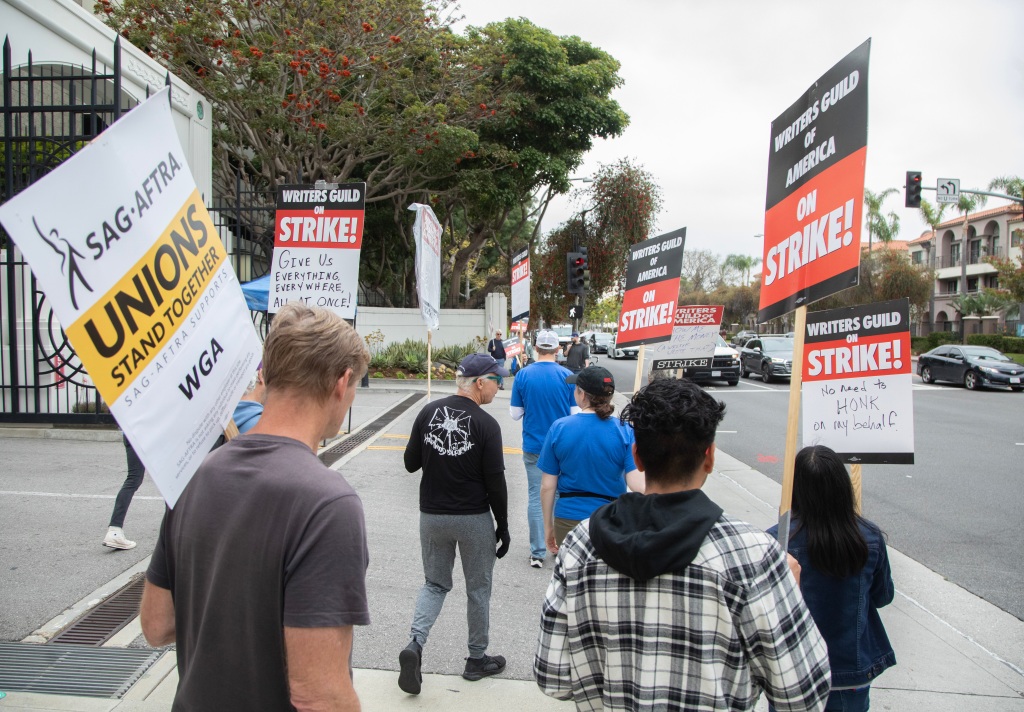
With the news that SAG/AMPTP negotiations could push into next week, international acting unions are for the most part taking a cautious approach to supporting a potential actors strike.
Unlike writers guilds around the world, which came out in support of the WGA’s labor action prior to it being called, unions in English-speaking countries are being conservative.
With more than 1,000 actors now urging SAG-AFTRA’s leadership to take a tough line in negotiations with the Alliance of Motion Pictures and Television (AMPTP), and talks on a knife edge, questions have arisen over how other nations might respond and what guidance local actors will receive around working on projects from ‘struck’ U.S. companies.
Canadian actors guild ACTRA declined comment beyond saying the strike “has not yet happened and is currently speculative,” while the Brussels-based International Federation of Actors (FIA) had nothing to say with just two days to go before the first deadline runs down. As we revealed late yesterday, that deadline could yet be extended into next week if SAG and the AMPTP feel close to reaching a deal.
Most guilds we approached are keeping their powder dry until the situation becomes clearer but some international unions are taking a more forthright position. Mark Phillips, Communications Director at Australia’s Media, Entertainment and Arts Alliance, said SAG-AFTRA had been keeping his org informed.
“As a sister union, MEAA stands in solidarity with SAG-AFTRA and will continue to work with SAG-AFTRA to determine the appropriate steps needed on any productions in Australia that are impacted by industrial action if it occurs in the U.S.,” he added.
‘We need to avoid confusion’
While the situation nearly two months in has now somewhat calmed, the first few days of the writers strike saw international scribes urgently seeking clarity over whether they were allowed to work on certain projects. When it comes to actors, sources told Deadline they want to avoid a repeat of the confusion that reigned in areas such as co-productions and streamer shows that were commissioned outside of the U.S.
John McVay, who runs UK producer trade body Pact, said his body is seeking “clarity and consistency” prior to giving advice to his hundreds of indie members, dozens of whom produce scripted and many of whom work with U.S. buyers.
“What we want to avoid is the confusion that happened with the WGA strike,” he added. “We want to know who can do what, where they can do it, and avoid any grey areas.”
One senior UK source with knowledge of the situation said actors union Equity, which, according to Variety, has been in LA this week speaking with SAG officials, is “more robust” when it comes to the American guilds.
“Equity would not look so kindly on anything that bled into their members’ ability to get work,” added the source. “They don’t want SAG to get a toehold in the UK but the problem is that you have British actors working in the U.S. who will also be members of SAG.”
The source also pointed out that “the prospect of substituting a British writer for an American writer is completely different to bringing in a British actor for an American actor,” and conversations will be taking place behind the scenes about this disparity.
As with other worldwide actor guilds, Equity declined Deadline’s request for comment on the strike, as did UK directors guild Directors UK and behind-the-camera union Bectu.
Multiple big-budget U.S. TV series and movies are currently being filmed outside the U.S. including the likes of House of the Dragon, Andor and HBO’s The Palace. Were a strike to eventually be authorized, industry eyes will turn to these tentpoles. For now, acting guilds around the world are sitting tight.













